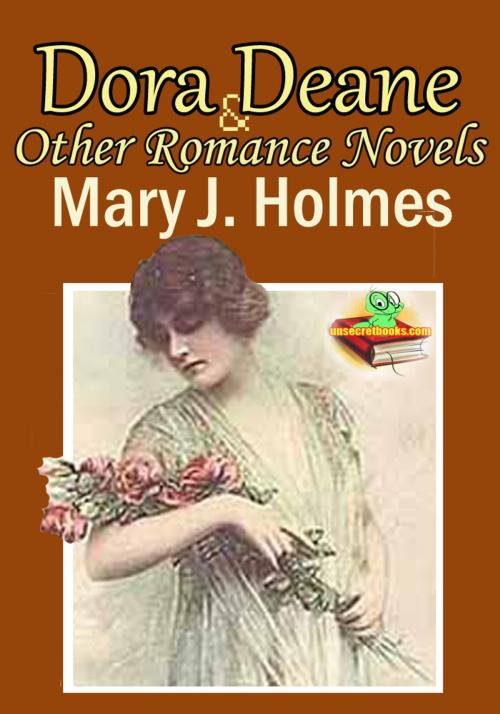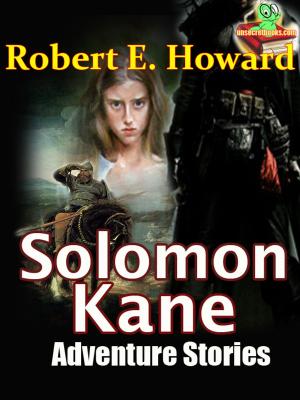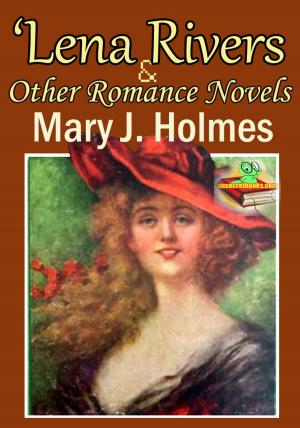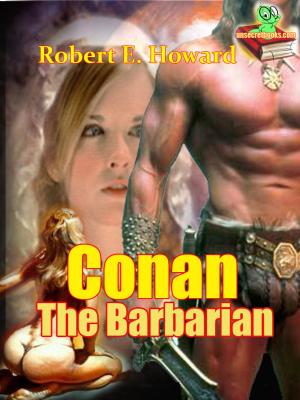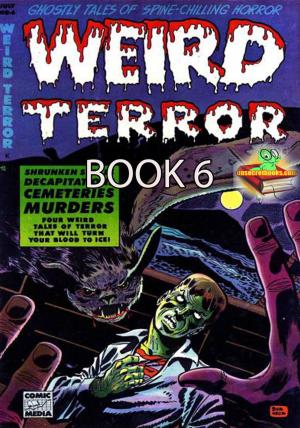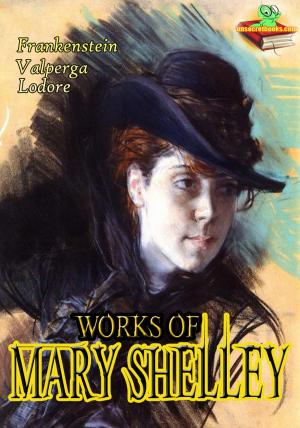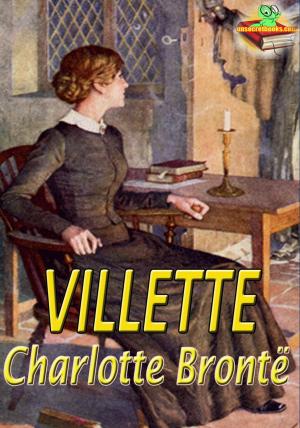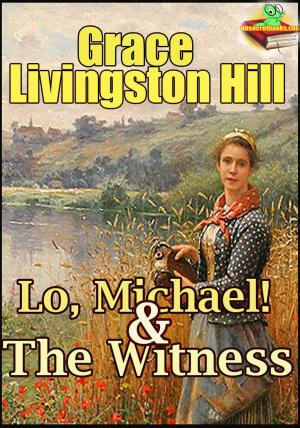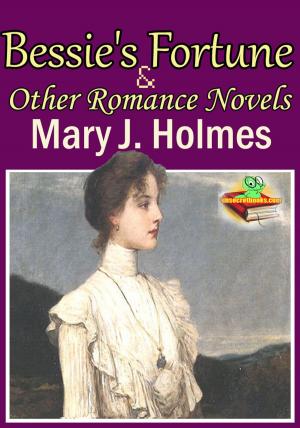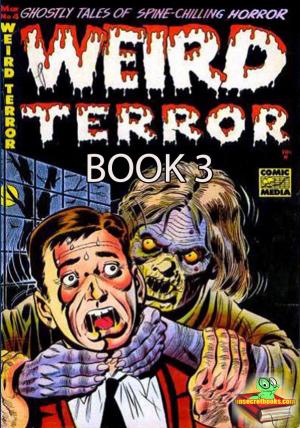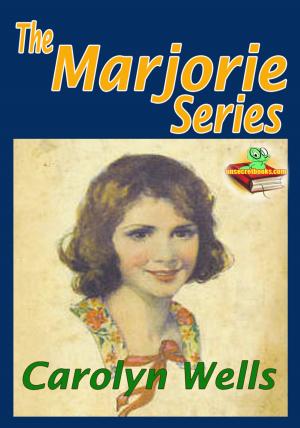Dora Deane: Darkness and Daylight: Bad Hugh
(3 Timeless Romance Novels)
Fiction & Literature, Classics, Romance, Contemporary| Author: | Mary J. Holmes | ISBN: | 1230000103743 |
| Publisher: | Unsecretbooks.com | Publication: | January 31, 2013 |
| Imprint: | Language: | English |
| Author: | Mary J. Holmes |
| ISBN: | 1230000103743 |
| Publisher: | Unsecretbooks.com |
| Publication: | January 31, 2013 |
| Imprint: | |
| Language: | English |
"Mrs. Holmes is a peculiarly pleasant and fascinating writer. Her books are always entertaining, and she has the rare faculty of enlisting the sympathy and affections of her readers, and of holding their attention to her pages with deep and absorbing interest."
G.W. Dillingham Co., Publishers, NEW YORK.
Mary Jane Holmes was a bestselling and prolific American author who published 39 popular novels, as well as short stories. Her first novel sold 250,000 copies; and she had total sales of 2 million books in her lifetime, second only to Harriet Beecher Stowe.
Portraying domestic life in small town and rural settings, she examined gender relationships, as well as those of class and race. She also dealt with slavery and the American Civil War, with a strong sense of moral justice. Since the late 20th century, she has received fresh recognition and reappraisal, although her popular work was excluded from most 19th-century literary histories compiled by men.
This book is contained 3 Romance Novels.
“Dora Deane”
It was a small, low, scantily furnished room, high up in the third story of a crazy old building, which Dora called her home, and its one small window looked out on naught save the roofs and spires of the great city whose dull, monotonous roar was almost the only sound to which she had ever listened. Of the country, with its bright green grass, its sweet wild flowers, its running brooks, and its shady trees, she knew but little, for only once had she looked on all these things, and then her heart was very sad, for the bright green grass was broken, and the sweet wild flowers were trampled down, that a grave might be made in the dark, moist earth for her father, who had died in early manhood, leaving his wife and only child to battle with the selfish world as best they could. Since that time, life had been long and dreary to the poor widow, whose hours were well-nigh ended, for ere to-morrow's sun was risen, she would have a better home than that dreary, cheerless room, while Dora, at the early age of twelve, would be an orphan.
“Darkness and Daylight”
So they came back again and made for themselves a home on the shore of the silvery lake so famed in song, where they hoped to rest from their weary journeyings. But it was not so decreed. Slowly as poison works within the blood, a fearful blight was stealing upon the noble, uncomplaining Richard, who had sacrificed his early manhood to his father's fancies, and when at last the blow had fallen and crushed him in its might, he became as helpless as a little child, looking to others for the aid he had heretofore been accustomed to render. Then it was that the weak old man emerged for a time from beneath the cloud which had enveloped him so long, and winding his arms around his stricken boy, said, submissively, "What will poor Dick have me do?" "Go to Collingwood, where I know every walk and winding path, and where the world will not seem so dreary, for I shall be at home." The father had not expected this, and his palsied hands shook nervously; but the terrible misfortune of his son had touched a chord of pity, and brought to his darkened mind a vague remembrance of the years in which the unselfish Richard had thought only of his comfort, and so he answered sadly, "We will go to Collingwood."
“Bad Hugh”
A large, old-fashioned, weird-looking wooden building, with strangely shaped bay windows and stranger gables projecting here and there from the slanting roof, where the green moss clung in patches to the moldy shingles, or formed a groundwork for the nests the swallows built year after year beneath the decaying eaves. Long, winding piazzas, turning sharp, sudden angles, and low, square porches, where the summer sunshine held many a fantastic dance, and where the winter storm piled up its drifts of snow, whistling merrily as it worked, and shaking the loosened casement as it went whirling by. Huge trees of oak and maple, whose topmost limbs had borne and cast the leaf for nearly a century of years, tall evergreens, among whose boughs the autumn wind ploughed mournfully, making sad music for those who cared to listen, and adding to the loneliness which, during many years, had invested the old place. A wide spreading grassy lawn, with the carriage road winding through it, over the running brook, and onward 'neath graceful forest trees, until it reached the main highway, a distance of nearly half a mile. A spacious garden in the rear, with bordered walks and fanciful mounds, with climbing roses and creeping vines showing that somewhere there was a taste, a ruling hand, which, while neglecting the somber building and suffering it to decay, lavished due care upon the grounds, and not on these alone, but also on the well-kept barns, and the whitewashed dwellings in front, where numerous, happy, well-fed negroes lived and lounged, for ours is a Kentucky scene, and Spring Bank a Kentucky home.
"Mrs. Holmes is a peculiarly pleasant and fascinating writer. Her books are always entertaining, and she has the rare faculty of enlisting the sympathy and affections of her readers, and of holding their attention to her pages with deep and absorbing interest."
G.W. Dillingham Co., Publishers, NEW YORK.
Mary Jane Holmes was a bestselling and prolific American author who published 39 popular novels, as well as short stories. Her first novel sold 250,000 copies; and she had total sales of 2 million books in her lifetime, second only to Harriet Beecher Stowe.
Portraying domestic life in small town and rural settings, she examined gender relationships, as well as those of class and race. She also dealt with slavery and the American Civil War, with a strong sense of moral justice. Since the late 20th century, she has received fresh recognition and reappraisal, although her popular work was excluded from most 19th-century literary histories compiled by men.
This book is contained 3 Romance Novels.
“Dora Deane”
It was a small, low, scantily furnished room, high up in the third story of a crazy old building, which Dora called her home, and its one small window looked out on naught save the roofs and spires of the great city whose dull, monotonous roar was almost the only sound to which she had ever listened. Of the country, with its bright green grass, its sweet wild flowers, its running brooks, and its shady trees, she knew but little, for only once had she looked on all these things, and then her heart was very sad, for the bright green grass was broken, and the sweet wild flowers were trampled down, that a grave might be made in the dark, moist earth for her father, who had died in early manhood, leaving his wife and only child to battle with the selfish world as best they could. Since that time, life had been long and dreary to the poor widow, whose hours were well-nigh ended, for ere to-morrow's sun was risen, she would have a better home than that dreary, cheerless room, while Dora, at the early age of twelve, would be an orphan.
“Darkness and Daylight”
So they came back again and made for themselves a home on the shore of the silvery lake so famed in song, where they hoped to rest from their weary journeyings. But it was not so decreed. Slowly as poison works within the blood, a fearful blight was stealing upon the noble, uncomplaining Richard, who had sacrificed his early manhood to his father's fancies, and when at last the blow had fallen and crushed him in its might, he became as helpless as a little child, looking to others for the aid he had heretofore been accustomed to render. Then it was that the weak old man emerged for a time from beneath the cloud which had enveloped him so long, and winding his arms around his stricken boy, said, submissively, "What will poor Dick have me do?" "Go to Collingwood, where I know every walk and winding path, and where the world will not seem so dreary, for I shall be at home." The father had not expected this, and his palsied hands shook nervously; but the terrible misfortune of his son had touched a chord of pity, and brought to his darkened mind a vague remembrance of the years in which the unselfish Richard had thought only of his comfort, and so he answered sadly, "We will go to Collingwood."
“Bad Hugh”
A large, old-fashioned, weird-looking wooden building, with strangely shaped bay windows and stranger gables projecting here and there from the slanting roof, where the green moss clung in patches to the moldy shingles, or formed a groundwork for the nests the swallows built year after year beneath the decaying eaves. Long, winding piazzas, turning sharp, sudden angles, and low, square porches, where the summer sunshine held many a fantastic dance, and where the winter storm piled up its drifts of snow, whistling merrily as it worked, and shaking the loosened casement as it went whirling by. Huge trees of oak and maple, whose topmost limbs had borne and cast the leaf for nearly a century of years, tall evergreens, among whose boughs the autumn wind ploughed mournfully, making sad music for those who cared to listen, and adding to the loneliness which, during many years, had invested the old place. A wide spreading grassy lawn, with the carriage road winding through it, over the running brook, and onward 'neath graceful forest trees, until it reached the main highway, a distance of nearly half a mile. A spacious garden in the rear, with bordered walks and fanciful mounds, with climbing roses and creeping vines showing that somewhere there was a taste, a ruling hand, which, while neglecting the somber building and suffering it to decay, lavished due care upon the grounds, and not on these alone, but also on the well-kept barns, and the whitewashed dwellings in front, where numerous, happy, well-fed negroes lived and lounged, for ours is a Kentucky scene, and Spring Bank a Kentucky home.
